-
 C. Auguste Dupin is a man in Paris who solves the mysterious brutal murder of two women. Numerous witnesses heard a suspect, though no one agrees on what language was spoken. At the murder scene, Dupin finds a hair that does not appear to be human. As the first true detective in fiction, the Dupin character established many literary devices which would be used in future fictional detectives including Sherlock Holmes and Hercule Poirot. Many later characters, for example, follow Poe's model of the brilliant detective, his personal friend who serves as narrator, and the final revelation being presented before the reasoning that leads up to it.
C. Auguste Dupin is a man in Paris who solves the mysterious brutal murder of two women. Numerous witnesses heard a suspect, though no one agrees on what language was spoken. At the murder scene, Dupin finds a hair that does not appear to be human. As the first true detective in fiction, the Dupin character established many literary devices which would be used in future fictional detectives including Sherlock Holmes and Hercule Poirot. Many later characters, for example, follow Poe's model of the brilliant detective, his personal friend who serves as narrator, and the final revelation being presented before the reasoning that leads up to it. -
 Two pairs of young lovers fall asleep in an ancient Athenian forest and wake to find themselves in the middle of a good deed gone wrong. A Midsummer Night's Dream conjures up a fairyland inhabited by well-intentioned sprites whose magic leads to farcical confusion. The mirthful tangle of mistaken identities and misplaced affections develops and resolves in the glorious poetry of England's greatest playwright.Shakespeare's fantastical comedy has enchanted audiences
Two pairs of young lovers fall asleep in an ancient Athenian forest and wake to find themselves in the middle of a good deed gone wrong. A Midsummer Night's Dream conjures up a fairyland inhabited by well-intentioned sprites whose magic leads to farcical confusion. The mirthful tangle of mistaken identities and misplaced affections develops and resolves in the glorious poetry of England's greatest playwright.Shakespeare's fantastical comedy has enchanted audiences -
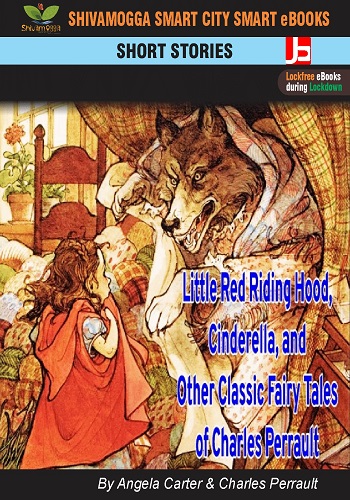 Little Red Riding Hood. Cinderella. Sleeping Beauty. Bluebeard. The Fairies. Many classic fairy tale characters might not have survived into the present were it not for Charles Perrault, a seventeenth-century French civil servant who rescued them from the oral tradition and committed them to paper. Three centuries later, Angela Carter, widely regarded as one of England’s most imaginative writers, adapted them for contemporary readers. The result is a cornucopia of fantastic characters and timeless adventures, stylishly retold by a modern literary visionary.
Little Red Riding Hood. Cinderella. Sleeping Beauty. Bluebeard. The Fairies. Many classic fairy tale characters might not have survived into the present were it not for Charles Perrault, a seventeenth-century French civil servant who rescued them from the oral tradition and committed them to paper. Three centuries later, Angela Carter, widely regarded as one of England’s most imaginative writers, adapted them for contemporary readers. The result is a cornucopia of fantastic characters and timeless adventures, stylishly retold by a modern literary visionary. -
 Narnia: A magical land full of wonder and excitement. A place where you will meet Aslan, the bravest of lions, and a beautiful but wicked Witch. There are lots of other fabulous creatures too: giants and dwarfs and animals that talk. It all begins when four children -- Peter, Susan, Edmund, and Lucy -- discover a strange old wardrobe. Stepping inside, they find that it's stranger still, because behind all the fur coats there is a wondrous land of trees and mountains, all glistening with snow. The White Witch has spread an icy winter everywhere. Only Aslan can defeat her and reverse her wicked spell. The children must find the lion before it is too late. If they fail, the Witch will make them her prisoners forever. In the fifty years since it was written, The Lion, the Witch And the Wardrobe has become one of the great classics of children's literature. Now younger children can share the magical experience, stepping into a world of enchantment that will forever lure them back.
Narnia: A magical land full of wonder and excitement. A place where you will meet Aslan, the bravest of lions, and a beautiful but wicked Witch. There are lots of other fabulous creatures too: giants and dwarfs and animals that talk. It all begins when four children -- Peter, Susan, Edmund, and Lucy -- discover a strange old wardrobe. Stepping inside, they find that it's stranger still, because behind all the fur coats there is a wondrous land of trees and mountains, all glistening with snow. The White Witch has spread an icy winter everywhere. Only Aslan can defeat her and reverse her wicked spell. The children must find the lion before it is too late. If they fail, the Witch will make them her prisoners forever. In the fifty years since it was written, The Lion, the Witch And the Wardrobe has become one of the great classics of children's literature. Now younger children can share the magical experience, stepping into a world of enchantment that will forever lure them back. -
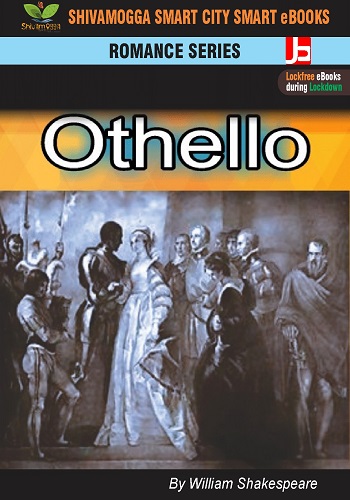 Othello (The Romance of Othello, the Moor of Venice) is a tragedy by William Shakespeare. It is based on the story Un Capitano Moro ("A Moorish Captain") by Cinthio (a disciple of Boccaccio's). The story revolves around its two central characters: Othello, a Moorish general in the Venetian army, and his treacherous ensign, Iago. Given its varied and enduring themes of racism, love, jealousy, betrayal, revenge, and repentance.
Othello (The Romance of Othello, the Moor of Venice) is a tragedy by William Shakespeare. It is based on the story Un Capitano Moro ("A Moorish Captain") by Cinthio (a disciple of Boccaccio's). The story revolves around its two central characters: Othello, a Moorish general in the Venetian army, and his treacherous ensign, Iago. Given its varied and enduring themes of racism, love, jealousy, betrayal, revenge, and repentance. -
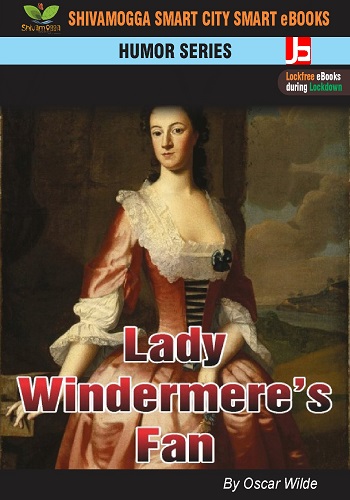 Lady Windermere's Fan, A Play About a Good Woman is a four-act comedy by Oscar Wilde, at the St James's Theatre in London. The story concerns Lady Windermere, who suspects that her husband is having an affair with another woman. She confronts him with it but although he denies it, he invites the other woman, Mrs Erlynne, to his wife's birthday ball. Angered by her husband's supposed unfaithfulness, Lady Windermere decides to leave her husband for another lover. After discovering what has transpired, Mrs Erlynne follows Lady Windermere and attempts to persuade her to return to her husband and in the course of this, Mrs Erlynne is discovered in a compromising position. It is then revealed Mrs Erlynne is Lady Windermere's mother, who abandoned her family twenty years before the time the play is set. Mrs Erlynne sacrifices herself and her reputation to save her daughter's marriage. Act I The play opens in the morning room of the Windermeres' residence in London. It is tea time and Lady Windermere--who is preparing for her coming of age birthday ball that evening--has a visit from a friend, Lord Darlington. She shows off her new fan: a present from her husband. She explains to Lord Darlington that she is upset over the compliments he continues to pay to her, revealing that she is a Puritan and has very particular views about what is acceptable in society. The Duchess of Berwick calls and Lord Darlington leaves shortly thereafter. The Duchess informs Lady Windermere that her husband may be betraying her marriage by making repeated visits to another woman, a Mrs Erlynne, and possibly giving her large sums of money. These rumours have been gossip among London society for quite a while, though seemingly this is the first Lady Windermere has heard about it. Following the departure of the Duchess, Lady Windermere decides to check her husband's bank book. She finds the book in a desk and sees that nothing appears amiss, though on returning she discovers a second bank book: one with a lock. After prying the lock open, she finds it lists large sums of money given to Mrs Erlynne. At this point, Lord Windermere enters and she confronts him. Though he cannot deny that he has had dealings with Mrs Erlynne, he states that he is not betraying Lady Windermere. He requests that she send Mrs Erlynne an invitation to her birthday ball that evening to help her back into society. When Lady Windermere refuses, he writes out an invitation himself. Lady Windermere makes clear her intention to cause a scene if Mrs Erlynne appears, to which Lord Windermere responds that it would be in her best interest not to do so. Lady Windermere leaves in disgust to prepare for the party, and Lord Windermere reveals in soliloquy that he is protecting Mrs Erlynne's true identity to save his wife extreme humiliation. What shall I do? I dare not tell her who this woman really is. The shame would kill her. -- Lord Windermere
Lady Windermere's Fan, A Play About a Good Woman is a four-act comedy by Oscar Wilde, at the St James's Theatre in London. The story concerns Lady Windermere, who suspects that her husband is having an affair with another woman. She confronts him with it but although he denies it, he invites the other woman, Mrs Erlynne, to his wife's birthday ball. Angered by her husband's supposed unfaithfulness, Lady Windermere decides to leave her husband for another lover. After discovering what has transpired, Mrs Erlynne follows Lady Windermere and attempts to persuade her to return to her husband and in the course of this, Mrs Erlynne is discovered in a compromising position. It is then revealed Mrs Erlynne is Lady Windermere's mother, who abandoned her family twenty years before the time the play is set. Mrs Erlynne sacrifices herself and her reputation to save her daughter's marriage. Act I The play opens in the morning room of the Windermeres' residence in London. It is tea time and Lady Windermere--who is preparing for her coming of age birthday ball that evening--has a visit from a friend, Lord Darlington. She shows off her new fan: a present from her husband. She explains to Lord Darlington that she is upset over the compliments he continues to pay to her, revealing that she is a Puritan and has very particular views about what is acceptable in society. The Duchess of Berwick calls and Lord Darlington leaves shortly thereafter. The Duchess informs Lady Windermere that her husband may be betraying her marriage by making repeated visits to another woman, a Mrs Erlynne, and possibly giving her large sums of money. These rumours have been gossip among London society for quite a while, though seemingly this is the first Lady Windermere has heard about it. Following the departure of the Duchess, Lady Windermere decides to check her husband's bank book. She finds the book in a desk and sees that nothing appears amiss, though on returning she discovers a second bank book: one with a lock. After prying the lock open, she finds it lists large sums of money given to Mrs Erlynne. At this point, Lord Windermere enters and she confronts him. Though he cannot deny that he has had dealings with Mrs Erlynne, he states that he is not betraying Lady Windermere. He requests that she send Mrs Erlynne an invitation to her birthday ball that evening to help her back into society. When Lady Windermere refuses, he writes out an invitation himself. Lady Windermere makes clear her intention to cause a scene if Mrs Erlynne appears, to which Lord Windermere responds that it would be in her best interest not to do so. Lady Windermere leaves in disgust to prepare for the party, and Lord Windermere reveals in soliloquy that he is protecting Mrs Erlynne's true identity to save his wife extreme humiliation. What shall I do? I dare not tell her who this woman really is. The shame would kill her. -- Lord Windermere -
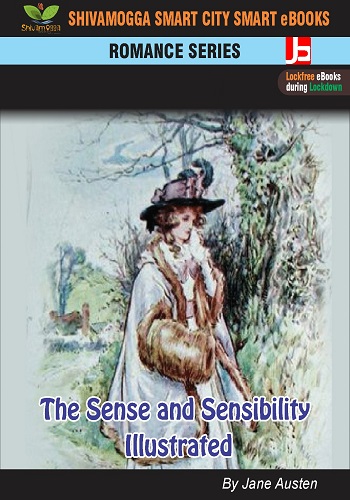 Jane Austen’s first published novel, Sense and Sensibility is a wonderfully entertaining tale of flirtation and folly that revolves around two starkly different sisters, Elinor and Marianne Dashwood. While Elinor is thoughtful, considerate, and calm, her younger sister is emotional and wildly romantic. Both are looking for a husband, but neither Elinor’s reason nor Marianne’s passion can lead them to perfect happiness—as Marianne falls for an unscrupulous rascal and Elinor becomes attached to a man who’s already engaged. Startling secrets, unexpected twists, and heartless betrayals interrupt the marriage games that follow. Filled with satiric wit and subtle characterizations, Sense and Sensibility teaches that true love requires a balance of reason and emotion.
Jane Austen’s first published novel, Sense and Sensibility is a wonderfully entertaining tale of flirtation and folly that revolves around two starkly different sisters, Elinor and Marianne Dashwood. While Elinor is thoughtful, considerate, and calm, her younger sister is emotional and wildly romantic. Both are looking for a husband, but neither Elinor’s reason nor Marianne’s passion can lead them to perfect happiness—as Marianne falls for an unscrupulous rascal and Elinor becomes attached to a man who’s already engaged. Startling secrets, unexpected twists, and heartless betrayals interrupt the marriage games that follow. Filled with satiric wit and subtle characterizations, Sense and Sensibility teaches that true love requires a balance of reason and emotion. -
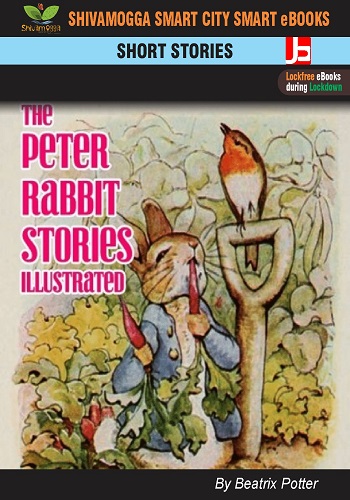 Beatrix Potter wrote and published it, the idea has been turned down by six commercial publishers. One year later finally, a editor discovered the great talent. Having seen a copy, Frederick Warne decided to publish ›Peter Rabbit‹, and within a year he already had to produce six editions to meet demand. This was the start of the most successful children's book series of all times.
Beatrix Potter wrote and published it, the idea has been turned down by six commercial publishers. One year later finally, a editor discovered the great talent. Having seen a copy, Frederick Warne decided to publish ›Peter Rabbit‹, and within a year he already had to produce six editions to meet demand. This was the start of the most successful children's book series of all times. -
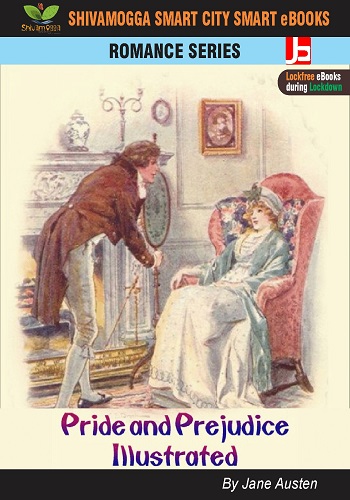 "It is a truth universally acknowledged, that a single man in possession of a good fortune, must be in want of a wife." And certainly what Melville did for whaling Austen does for marriage--tracing the intricacies (not to mention the economics) of 19th-century British rituals with a sure hand and an unblinking eye. As usual, Austen trains her sights on a country village and a few families--in this case, the Bennets, the Philips, and the Lucases. Into their midst comes Mr. Bingley, a single man of good fortune, and his friend, Mr. Darcy, who is even richer. Mrs. Bennet, who married above her station, sees their arrival as an opportunity to marry off at least one of her five daughters. Bingley is complaisant and easily charmed by the eldest Bennet girl, Jane; Darcy, however, is harder to please. Put off by Mrs. Bennet's vulgarity and the untoward behavior of the three younger daughters, he is unable to see the true worth of the older girls, Jane and Elizabeth. His excessive pride offends Lizzy, who is more than willing to believe the worst that other people have to say of him; when George Wickham, a soldier stationed in the village, does indeed have a discreditable tale to tell, his words fall on fertile ground. Having set up the central misunderstanding of the novel, Austen then brings in her cast of fascinating secondary characters: Mr. Collins, the sycophantic clergyman who aspires to Lizzy's hand but settles for her best friend, Charlotte, instead; Lady Catherine de Bourgh, Mr. Darcy's insufferably snobbish aunt; and the Gardiners, Jane and Elizabeth's low-born but noble-hearted aunt and uncle. Some of Austen's best comedy comes from mixing and matching these representatives of different classes and economic strata, demonstrating the hypocrisy at the heart of so many social interactions. And though the novel is rife with romantic misunderstandings, rejected proposals, disastrous elopements, and a requisite happy ending for those who deserve one, Austen never gets so carried away with the romance that she loses sight of the hard economic realities of 19th-century matrimonial maneuvering. Good marriages for penniless girls such as the Bennets are hard to come by, and even Lizzy, who comes to sincerely value Mr. Darcy, remarks when asked when she first began to love him: "It has been coming on so gradually, that I hardly know when it began. But I believe I must date it from my first seeing his beautiful grounds at Pemberley." She may be joking, but there's more than a little truth to her sentiment, as well. Jane Austen considered Elizabeth Bennet "as delightful a creature as ever appeared in print". Readers of Pride and Prejudice would be hard-pressed to disagree. --Alix Wilber
"It is a truth universally acknowledged, that a single man in possession of a good fortune, must be in want of a wife." And certainly what Melville did for whaling Austen does for marriage--tracing the intricacies (not to mention the economics) of 19th-century British rituals with a sure hand and an unblinking eye. As usual, Austen trains her sights on a country village and a few families--in this case, the Bennets, the Philips, and the Lucases. Into their midst comes Mr. Bingley, a single man of good fortune, and his friend, Mr. Darcy, who is even richer. Mrs. Bennet, who married above her station, sees their arrival as an opportunity to marry off at least one of her five daughters. Bingley is complaisant and easily charmed by the eldest Bennet girl, Jane; Darcy, however, is harder to please. Put off by Mrs. Bennet's vulgarity and the untoward behavior of the three younger daughters, he is unable to see the true worth of the older girls, Jane and Elizabeth. His excessive pride offends Lizzy, who is more than willing to believe the worst that other people have to say of him; when George Wickham, a soldier stationed in the village, does indeed have a discreditable tale to tell, his words fall on fertile ground. Having set up the central misunderstanding of the novel, Austen then brings in her cast of fascinating secondary characters: Mr. Collins, the sycophantic clergyman who aspires to Lizzy's hand but settles for her best friend, Charlotte, instead; Lady Catherine de Bourgh, Mr. Darcy's insufferably snobbish aunt; and the Gardiners, Jane and Elizabeth's low-born but noble-hearted aunt and uncle. Some of Austen's best comedy comes from mixing and matching these representatives of different classes and economic strata, demonstrating the hypocrisy at the heart of so many social interactions. And though the novel is rife with romantic misunderstandings, rejected proposals, disastrous elopements, and a requisite happy ending for those who deserve one, Austen never gets so carried away with the romance that she loses sight of the hard economic realities of 19th-century matrimonial maneuvering. Good marriages for penniless girls such as the Bennets are hard to come by, and even Lizzy, who comes to sincerely value Mr. Darcy, remarks when asked when she first began to love him: "It has been coming on so gradually, that I hardly know when it began. But I believe I must date it from my first seeing his beautiful grounds at Pemberley." She may be joking, but there's more than a little truth to her sentiment, as well. Jane Austen considered Elizabeth Bennet "as delightful a creature as ever appeared in print". Readers of Pride and Prejudice would be hard-pressed to disagree. --Alix Wilber -
 At Baskerville Hall on the grim moors of Devonshire, a legendary curse has apparently claimed one more victim. Sir Charles Baskerville has been found dead. There are no signs of violence, but his face is hideously distorted with terror. Years earlier, a hound-like beast with blazing eyes and dripping jaws was reported to have torn out the throat of Hugo Baskerville. Has the spectral destroyer struck again? More important, is Sir Henry Baskerville, younger heir to the estate, now in danger?Enter Sherlock Holmes, summoned to protect Sir Henry from the fate that has threatened the Baskerville family. As Holmes and Watson begin to investigate, a blood-chilling howl from the fog-shrouded edges of the great Grimpen Mire signals that the legendary hound of the Baskervilles is poised for yet another murderous attack. It has often been called the best detective story ever written. It remains a thrilling tale of suspense, must reading for every lover of detective fiction.
At Baskerville Hall on the grim moors of Devonshire, a legendary curse has apparently claimed one more victim. Sir Charles Baskerville has been found dead. There are no signs of violence, but his face is hideously distorted with terror. Years earlier, a hound-like beast with blazing eyes and dripping jaws was reported to have torn out the throat of Hugo Baskerville. Has the spectral destroyer struck again? More important, is Sir Henry Baskerville, younger heir to the estate, now in danger?Enter Sherlock Holmes, summoned to protect Sir Henry from the fate that has threatened the Baskerville family. As Holmes and Watson begin to investigate, a blood-chilling howl from the fog-shrouded edges of the great Grimpen Mire signals that the legendary hound of the Baskervilles is poised for yet another murderous attack. It has often been called the best detective story ever written. It remains a thrilling tale of suspense, must reading for every lover of detective fiction. -
 Through the eyes of Lemuel Gulliver, Swift's unforgettable satire takes readers into worlds formerly unimagined. Visit four strange and remarkable lands: Lilliput, where Gulliver seems a giant among a race of tiny people; Brobdingnag, the opposite, where the natives are giants and Gulliver puny; the ruined yet magical country of Laputa; and the home of the Houyhnhnms, gentle horses far superior to the ugly humanoid Yahoos who share their universe.
Through the eyes of Lemuel Gulliver, Swift's unforgettable satire takes readers into worlds formerly unimagined. Visit four strange and remarkable lands: Lilliput, where Gulliver seems a giant among a race of tiny people; Brobdingnag, the opposite, where the natives are giants and Gulliver puny; the ruined yet magical country of Laputa; and the home of the Houyhnhnms, gentle horses far superior to the ugly humanoid Yahoos who share their universe. -
 The story of Heidi was written over one hundred years ago, however, it is far from a period piece. In the Swiss Alps, where it is set, a hundred years is just the blink of an eye. We see in her the daughter that every mother dreams of having and every little girl dreams of being. Her presence makes us happy, and so her story has endured.
The story of Heidi was written over one hundred years ago, however, it is far from a period piece. In the Swiss Alps, where it is set, a hundred years is just the blink of an eye. We see in her the daughter that every mother dreams of having and every little girl dreams of being. Her presence makes us happy, and so her story has endured. -
 This early work by Edgar Wallace. ""The Golden Hades"" is a tale of murder and a symbol on bank notes leading to a sinister organization. This mystery novel features Wilbur Smith of the Treasury Department for Counterfeit in his investigations. Each time a crime happens be it a robbery or a murder, there is a sinister sign of Pluto (Hades) gold there... a statue of the Greek god of the underworld and the sign of dangerous gang of forgers. One of the most prolific writers of the twentieth century, Edgar Wallace was an immensely popular author, who created exciting thrillers spiced with tales of treacherous crooks and hard-boiled detectives. **
This early work by Edgar Wallace. ""The Golden Hades"" is a tale of murder and a symbol on bank notes leading to a sinister organization. This mystery novel features Wilbur Smith of the Treasury Department for Counterfeit in his investigations. Each time a crime happens be it a robbery or a murder, there is a sinister sign of Pluto (Hades) gold there... a statue of the Greek god of the underworld and the sign of dangerous gang of forgers. One of the most prolific writers of the twentieth century, Edgar Wallace was an immensely popular author, who created exciting thrillers spiced with tales of treacherous crooks and hard-boiled detectives. ** -
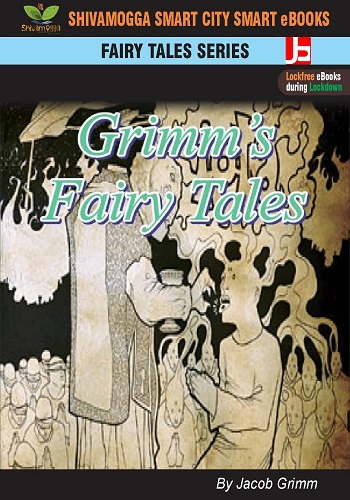 Grimm's Fairy Tales is the definitive collection of fairy tales in the English language. This collection includes favorites like Rapunzel, The Frog Prince, The Twelve Dancing Princesses, Hansel and Gretel, and Rumplestiltzkin. Lesser known stories like The Golden Bird and The Goose-Girl are sure to delight and enchant children of all ages.
Grimm's Fairy Tales is the definitive collection of fairy tales in the English language. This collection includes favorites like Rapunzel, The Frog Prince, The Twelve Dancing Princesses, Hansel and Gretel, and Rumplestiltzkin. Lesser known stories like The Golden Bird and The Goose-Girl are sure to delight and enchant children of all ages. -
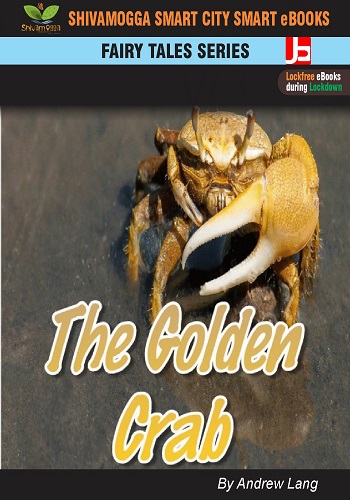 The Golden Crab' is a Greek fairy-tale that tells us a story of fisherman who one day cathces a golden crab together with fish. The crab is being taken to the fisherman's house where he demands to be fed. So fisherman and his wife feed the creature. But then he demands to marry the fisherman's young daughter… what will happen next?
The Golden Crab' is a Greek fairy-tale that tells us a story of fisherman who one day cathces a golden crab together with fish. The crab is being taken to the fisherman's house where he demands to be fed. So fisherman and his wife feed the creature. But then he demands to marry the fisherman's young daughter… what will happen next? -
 The story begins with: On a glass mountain grew a tree with golden apples. An apple would let the picker into the golden castle where an enchanted princess lived. Many knights had tried and failed, so that many bodies lay about the mountain. A knight in golden armor tried. One day, he made it halfway up and calmly went down again. The second day, he tried for the top, and was climbing steadily when an eagle attacked him. He and his horse fell to their deaths. A schoolboy killed a lynx and climbed with its claws attached to his feet and hands. Weary, he rested on the slope. The eagle thought he was carrion and flew down to eat him. The boy grabbed it, and it, trying to shake him off, carried him the rest of the way. He cut off its feet and fell into the apple tree. The peels of the apples cured his wounds, and he picked more, to let him into the castle. He married the princess. The blood of the eagle restored to life everyone who had died trying to climb the mountain.
The story begins with: On a glass mountain grew a tree with golden apples. An apple would let the picker into the golden castle where an enchanted princess lived. Many knights had tried and failed, so that many bodies lay about the mountain. A knight in golden armor tried. One day, he made it halfway up and calmly went down again. The second day, he tried for the top, and was climbing steadily when an eagle attacked him. He and his horse fell to their deaths. A schoolboy killed a lynx and climbed with its claws attached to his feet and hands. Weary, he rested on the slope. The eagle thought he was carrion and flew down to eat him. The boy grabbed it, and it, trying to shake him off, carried him the rest of the way. He cut off its feet and fell into the apple tree. The peels of the apples cured his wounds, and he picked more, to let him into the castle. He married the princess. The blood of the eagle restored to life everyone who had died trying to climb the mountain. -
 Earnest and naive solicitor Jonathan Harker travels to Transylvania to organise the estate of the infamous Count Dracula at his crumbling castle in the ominous Carpathian Mountains. Through notes and diary entries, Harker keeps track of the horrors and terrors that beset him at the castle, telling his fiancé Mina of the Count’s supernatural powers and his own imprisonment. Although Harker eventually manages to escape and reunite with Mina, his experiences have led to a mental breakdown of sorts. Meanwhile in England, Mina’s friend Lucy has been bitten and begins to turn into a vampire. With the help of Professor Van Helsing, a previous suitor of Lucy’s, Seward, and Lucy’s fiancé Holmwood attempt to thwart Count Dracula and his attempts on Lucy and consequently Mina’s life. Arguably the most enduring Gothic novel of all times, Bram Stoker’s Dracula is as chilling today in its depiction of the vampire world and its exploration of Victorian values as it was at its time of publication.
Earnest and naive solicitor Jonathan Harker travels to Transylvania to organise the estate of the infamous Count Dracula at his crumbling castle in the ominous Carpathian Mountains. Through notes and diary entries, Harker keeps track of the horrors and terrors that beset him at the castle, telling his fiancé Mina of the Count’s supernatural powers and his own imprisonment. Although Harker eventually manages to escape and reunite with Mina, his experiences have led to a mental breakdown of sorts. Meanwhile in England, Mina’s friend Lucy has been bitten and begins to turn into a vampire. With the help of Professor Van Helsing, a previous suitor of Lucy’s, Seward, and Lucy’s fiancé Holmwood attempt to thwart Count Dracula and his attempts on Lucy and consequently Mina’s life. Arguably the most enduring Gothic novel of all times, Bram Stoker’s Dracula is as chilling today in its depiction of the vampire world and its exploration of Victorian values as it was at its time of publication. -
 Excerpt: ...I alighted there were tears of eagerness in my eyes. "Yes," I replied breathlessly, "oh, sir, yes." "Then pick up that," he cried dramatically, pointing to a cigar butt on the parade ground. I didn't wait for the laughter. I didn't have to. It was forthcoming immediately. Huge peals of it. Sailors are a very low tribe of vertebrate. They seem to hang around most of the time waiting for something to laugh at **
Excerpt: ...I alighted there were tears of eagerness in my eyes. "Yes," I replied breathlessly, "oh, sir, yes." "Then pick up that," he cried dramatically, pointing to a cigar butt on the parade ground. I didn't wait for the laughter. I didn't have to. It was forthcoming immediately. Huge peals of it. Sailors are a very low tribe of vertebrate. They seem to hang around most of the time waiting for something to laugh at **



